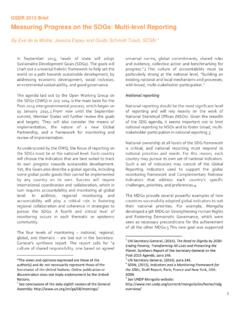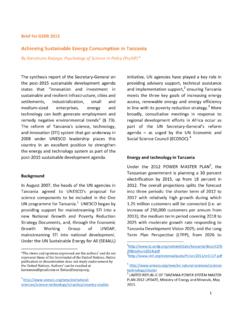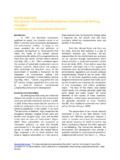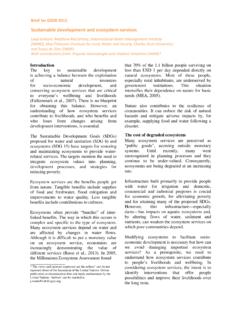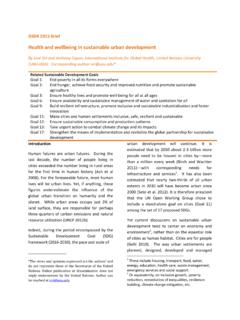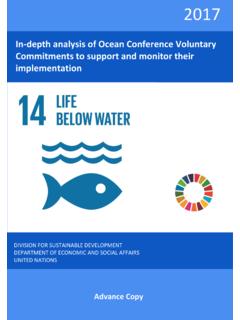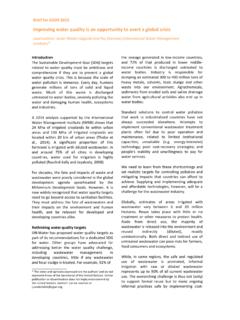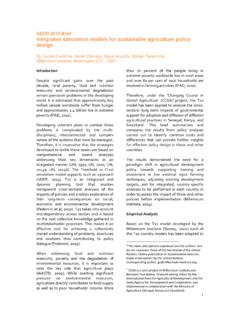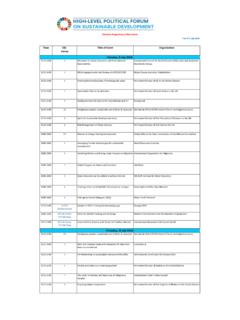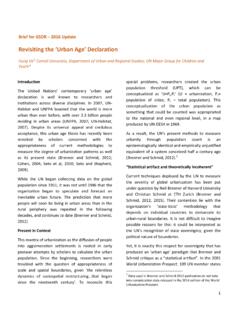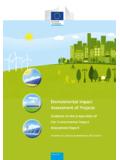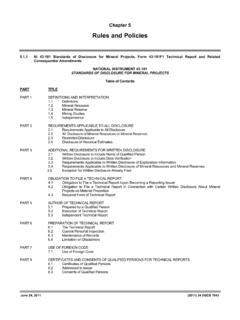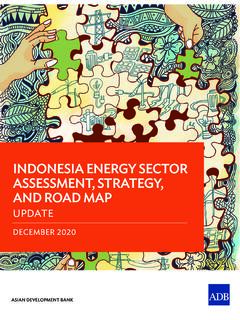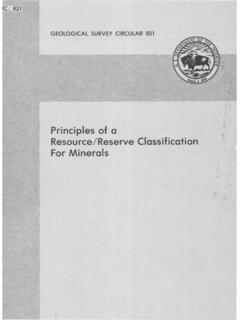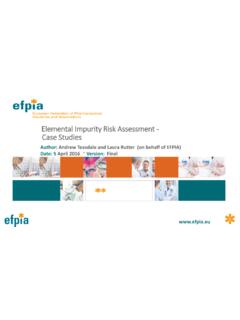Transcription of REPUBLIC OF GHANA - United Nations
1 REPUBLIC OF GHANANATIONAL assessment report ON ACHIEVEMENT OF SUSTAINABLE DEVELOPMENT GOALS AND TARGETS FOR RIO+20 CONFERENCEMINISTRY OF ENVIRONMENT SCIENCE AND TECHNOLOGYACCRA MARCH, of Acronyms Summary Introduction Background Methodology and Approach Outline of report Priority SD Issues and Trends Review of Past Development ..Strategies assessment of the Characteristics of ..Strategies Institutional Framework for SD Progress Made in Implementation of Sustainable Development Agenda Economic Performance Social Performance Environmental Performance Transition to Green Economy in the Context of Sustainable Development Challenges in Implementation Conclusions and Recommendations on the Way Forward Conclusions Recommendations 252 List of AcronymsA21 Agenda 21 CSPG Cross Sectoral Planning GroupCSO Civil Society Organization CSD Committee for Sustainable Development ECOWAS Economic Community of West African StatesEPA Environmental Protection OrganizationERP Economic Recovery Programme ECA Economic Commissions for AfricaFDI Foreign Direct InvestmentGNI Gross National IncomeGDP Gross Domestic IncomeGPRS GHANA Poverty Reduction StrategyGSGDA
2 GHANA Shared Growth Development Agenda GHG Green House GasGCF Gross Capital FormationHDI Human Development IndexIMR Infant Mortality RateJPOI Johannesburg Plan of ImplementationMDGs Millennium Development GoalsMDA Ministries, Departments and AgenciesMMDA Metropolitan Municipal and District AssembliesMEST Ministry of Environment, Science and TechnologyNAP National Action PlanNEPAD New Economic Partnership on Africa s DevelopmentNSSD National Strategies for Sustainable DevelopmentNDPC National Development Planning CommissionsODA Official Development AssistancePRSP Poverty Reduction Strategy Paper PNER Primary Net Enrolment RatioPGER Primary Gross Enrolment RatioREDD+ Reduced Emissions from Deforestation and Forest Degradation Plus SD Sustainable Development SAP Structural Adjustment ProgrammeSGER Secondary Gross Enrolment RatioSNER Secondary Net Enrolment RatioTNER Tertiary Net Enrolment RatioTGER Tertiary Gross Enrolment RatioTB Tuberculosis UN United NationsUNCSD United Nations Conference on Sustainable
3 DevelopmentUNCCD United Nations Convention to Combat DesertificationUNCED United Nations Conference on Environment and DevelopmentUNDP United Nations Development ProgramUNECA United Nations Economic Commission for AfricaUNEP United Nations Environment ProgramU5MR Under Five Mortality RateWSSD World Summit on Sustainable Development WHO World Health Organization3 Acknowledgement The Ministry of Environment Science and Technology (MEST) would like to express its sincere gratitude to ECOECON Consult, more specifically to Dr. Daniel Kwabena Twerefou and Dr. Kwadwo Tutu for putting together the first draft of this report and taking part in all the consultation to come out with the final report . We are also grateful to the UNDP for the technical and financial support, and more specifically, to Kareff May Rafisura - for her valuable inputs and guidance.
4 We are also indebted to Rudolf Sandy Kuuzegh Director of Finance and Administration, MEST for the tireless efforts he made to ensure that logistics were adequately provided and on Ministry would also like to acknowledge and appreciate the immense assistance, support and comments of the Sustainable Development Committee, more specifically the Chairman Dr. Peter Acquah and to Joshua Awuku-Apaw for editorial services. Notwithstanding the major inputs from those mentioned above, this report would not have been possible without the dedicated support of a large number of Officers from Ministries, Departments and Agencies in GHANA . We will like to state that all the opinions expressed in this report are entirely ours and do not necessarily represent those of any individual or organization. Any other errors are likewise our sole Summary The United Nations Conference on Environment and Development (UNCED) held in Rio de Janeiro, Brazil in 1992 made a landmark event by concentrating on SD.
5 A five and ten year reviews in 1997 and 2002 showed that not much had been achieved and member states and the international community were urged to increase efforts. In 2009, the United Nations Conference on Sustainable Development (UNCSD) planned a twenty year review of SD in Brazil, in 2012. The objectives are to secure renewed political commitment for SD, assess progress and gaps in implementation and discuss Green Economy in the context of SD and poverty eradication, and institutional framework for SD. Against this backdrop, this Review report for GHANA is being prepared within the framework of the Africa Regional Preparatory Process for Rio+ 20 by the Government of has made progress in the formulation and implementation of SD strategies since the Rio There is now a considerable knowledge and understanding of SD. Institutions for Sustainable have been established while SD as a tool for development has been recognized and being implemented.
6 Analysis of findings on the three pillars of sustainability indicates that the country has made some gains in the social and economic fronts. However, the gains made are marginal and can dissipate with little shock. Specifically, stable governance has led to a stable average growth rate of about 5% since 1990. However, a lot remains to be done on the environmental pillar where depletion, degradation and pollution is still a major challenge. Furthermore, the country is receiving a small share of revenue from natural resource exploitation due to weak value addition to primary products. Structural transformation of the economy also remains a major challenge since growth in the manufacturing sector is very weak. Additionally, there are still some challenges in job creation, education, water and sanitation, urbanization and consensus with government officials is that Green Economy is not a substitute for SD, but rather a way of realizing it.
7 In the past two years with the support of UNEP, the country has been discussing the transition to green economy in the areas of green budgeting; agriculture; energy; forests; water; transport and to a lesser extent, urban environmental management, roads, buildings, industrial installations, finance, manufacturing and tourism. Such a transition will require substantial resources part of which must come from the international are emerging issues that will make it difficult to achieve SD. Many of these are not new but the intensity of their impact has increased and therefore poses fundamental challenges to SD. These issues include climate change, desertification, coastal erosion, energy crisis, transparency in the management of mineral /oil resources, biodiversity and ecosystem loss, food insecurity, graduate unemployment, globalization and urbanization. Many of these issues arise from the fact that a long term SD strategy has not yet been put in place.
8 With significant natural resources, the need to integrate the total impacts of their exploitation can only be fully realized within a long term strategy. It is also through this that their linkages with agricultural modernization through the value chain to manufacturing and industry can be realized. GHANA faces a number of challenges in formulating and implementing SD strategies. These include inadequate ownership, commitments, governance and participation. There is also poor integration and coordination among MDAs; weak technical, institutional and financial capacity; political and policy inconsistencies; lack of harmony between national, regional and district policies; inability to monitor and evaluate the process and inadequate commitment of donors to meet their development assistance pledges as well as aligning their development assistance objectives to the priorities of the country.
9 In terms of transition to green economy, challenges include high initial investment cost; pledges from international community that are not fully fulfilled; law reform and its implementation and address the challenges require the development and implementation of long term development strategies with harmoniously integrated pillars of SD. This calls for building human and institutional capacities for policy formulation, implementation, monitoring and for the enforcement of legislation. Effective grassroot participation including the private sector and CSOs at the design and implementation stages is critical. There is also the need to strengthen decentralized government administration and political processes; sensitize and create awareness at the local level, promote sustainability practices and foster partnerships among policy makers and the country must also improve significantly its internal resource mobilization through market based policies such as taxes, subsidies, incentives; encourage the polluter pay principle in natural resources management and above all ensure efficient and effective management of resources to avoid waste.
10 This will serve as a signal for donor commitment to pledges. Above all, there is the need for the country to begin a serious transformation of 5the economy through the modernization of agriculture and the addition of value to our natural resources with the view to expanding the manufacturing sector. This is the surest way of creating significant employment, generating income and eradicating poverty. Background The United Nations Conference on Environment and Development (UNCED) held in Rio de Janeiro, Brazil in 1992 otherwise known as Rio Summit was a landmark event marking international commitment to provide public and political support to address environment and development issues in a holistic and integrated manner for the attainment of SD. Agenda 21 (A21), the main outcome of the Rio Summit called on countries to adopt National Strategies for Sustainable Development (NSSDs) that harmonize and integrate economic, social and environmental policies and plans at the national level.
